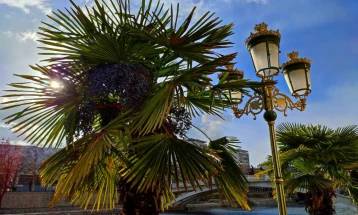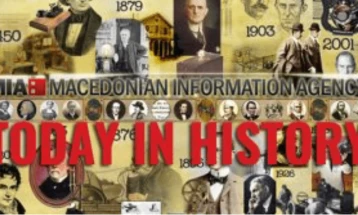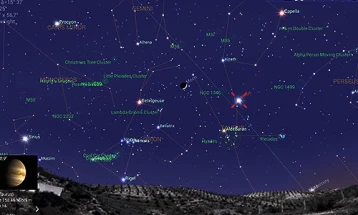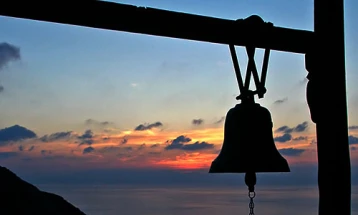Religious calendars
- 17 September 2024 (MIA)
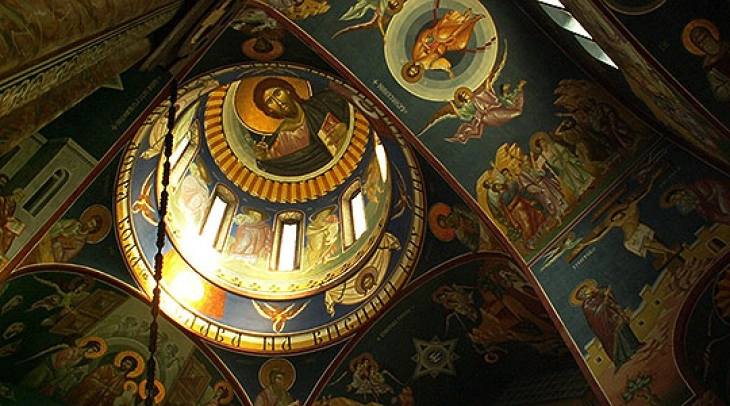
17 September 2024 (MIA)
Macedonian Orthodox Church Calendar
Hieromartyr Babylas
The Hieromartyr Babylas and with him the 3 Youths Urban, Prilidian, Eppolonias and their Mother Christodoula died as martyrs under the emperor Decius (249-251). During his stay in their city of Antioch, the emperor arranged for a large festival in honour of the pagan gods. At the same time, the holy and God-fearing Bishop of Antioch, Babylas was serving the Divine Liturgy in church; he prayed for his flock and taught it bravely to undergo all the tribulations for the faith in Christ. After his abominable idol-worship, Decius, curious to witness the Divine Mysteries, decided to enter the church and by his visit to defile the Sanctuary of the Lord. News of this reached the bishop, and he went out to meet him and blocked the path to the church because he was unwilling to permit impiety in the temple of God. When the emperor tried to get closer to the church doors, St. Babylas shoved him away with his hands, so that the emperor had to abandon his intention. He wanted to take revenge on the saint right away, but seeing the large throng of Christians, he feared a riot. The next day the angry emperor gave orders to set fire to the Christian temple, and to bring Bishop Babylas before him. When asked why he should insult the imperial dignity, and not allow the emperor into the church, nor respect his position, the holy bishop answered, “Anyone who would rise up against God and want to desecrate His sanctuary, is not worthy of respect, but has become the enemy of the Lord.” The emperor demanded that the holy bishop worship the idols and in so make up for his offence against the emperor, or else face execution. After convincing himself that the martyr would remain steadfast in his faith, he commanded the military commander Victorinus to put him in heavy chains and lead him through the city in disgrace. The holy martyr replied, “Emperor, for me these chains are as venerable, as your imperial crown is for you, and suffering for Christ for me is as acceptable as the imperial power is for you; death for the Immortal King is as desirable to me as your life is to you.” At the trial with Bishop Babylas were three young brothers, who did not forsake him even in this most difficult moment. Seeing them, the emperor asked, “Who are these children? ” “These are my spiritual children,” the saint replied , “and I have raised them in piety, I have given them an education, cultivated them with guidance, and here in a small body before you are these great young men and perfect Christians. Test them and see.”
Catholic Calendar
St. Robert Bellarmine
Born at Montepulciano, Italy, October 4, 1542, St. Robert Bellarmine was the third of ten children. His mother, Cinzia Cervini, a niece of Pope Marcellus II, was dedicated to almsgiving, prayer, meditation, fasting, and mortification of the body. Robert entered the newly formed Society of Jesus in 1560 and after his ordination went on to teach at Louvain (1570-1576) where he became famous for his Latin sermons. In 1576, he was appointed to the chair of controversial theology at the Roman College, becoming Rector in 1592; he went on to become Provincial of Naples in 1594 and Cardinal in 1598. This outstanding scholar and devoted servant of God defended the Apostolic See against the anti-clericals in Venice and against the political tenets of James I of England. He composed an exhaustive apologetic work against the prevailing heretics of his day. In the field of church-state relations, he took a position based on principles now regarded as fundamentally democratic – authority originates with God, but is vested in the people, who entrust it to fit rulers. This saint was the spiritual father of St. Aloysius Gonzaga, helped St. Francis de Sales obtain formal approval of the Visitation Order, and in his prudence opposed severe action in the case of Galileo. He has left us a host of important writings, including works of devotion and instruction, as well as controversy. He died in 1621.

